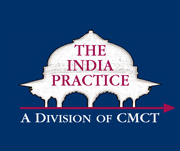Q: How important is it for Americans to have general knowledge about India when working with Indian teams and counterparts?
A: Very important. Americans generally know very little about Indian history, economics, current events, society, customs and culture. This results in having little to connect to with their Indian colleagues other than specific work-related tasks. There are also a number of unexamined stereotypes that can damage relationships. Having some knowledge of India shows respect for your Indian counterparts, and earns you more respect on their part as well. The CMCT India Practice has created a one-hour online quick immersion program "Cultural Awareness India" to gain an overview of India today.
Q: Are there differences in business protocol and work style in the different industrial sectors of India?
A: Yes. There is a continuum ranging from traditional public sector and manufacturing industries to the globalized high-technology sector and the world of multinationals operating in India. "Indian mainstream" protocols and work style are move evident in the traditional sectors, while the modern sectors are increasingly adapting to the norms of their global counterparts. Nevertheless, it pays for both Americans and Indians to be aware of each other's "mainstream tendencies" ? as business and work style habits, among all people, are deeply engrained in the core values and assumptions of the broader societies, and, under stress, will often revert to the ?default mode.?
Q: How can Indian teams get their American counterparts to understand that there may be factors beyond their control (strikes, power failures, frequent holidays, etc.) that can bring about project delays in India?
A: In general, Americans expect to control their environment. They like to have contingency plans in place to deal with anything unpredictable that may affect results. They have little patience with understanding the reasons why a project has been delayed. They expect the team in India to plan for possible contingencies in setting project timelines. India-U.S. project teams should (1) communicate forthrightly at the start, (2) set timelines that make room for unexpected occurrences, (3) hold frequent status check-ins, and (4) be ready to make mid-stream corrections as soon as beyond-control events appear on the horizon. To make this work, the Indian teams need to become culturally at ease with the “admit-and-warn” approach to project problems, and the American teams need to differentiate where flexibility is not an option, and what areas can be dealt with more flexibly.
Q: Do Indian colleagues automatically assume that U.S. colleagues are in authority or are to be respected regardless of role/status?
A: No. This type of mentality may have been present in an earlier era still influenced by the culture of colonialism. Today, it would be rare, especially among IT professionals. Respect has to be earned through behavior, and authority is seen as a factor of role, position, title and status. Americans who convey that they are entitled to respect because of their nationality, or treat their Indian colleagues condescendingly instead of as partners, will most likely not engender respect and good working relationships.
Q: What do your clients experience as the greatest strengths of Indian IT professionals?
A: We get consistent feedback on the following set of strengths: strong technical expertise and skills, high intelligence, quick learners, dedicated, strong work ethic, willingness to put in long hours, enthusiastic, eager to learn, responsive, eager to please, polite, friendly, good at following processes and instructions.
Q: When working with offshore counterparts in India, how long does it take to achieve an effective working relationship?
A: It depends. If the relationship has been initiated through a trusted third party, things can move quite quickly at the start. How effective both sides are at doing what needs to be done to establish mutual trust makes a difference. Working out roles, processes and chain of command issues up front can also help. Addressing differences in both national and organizational cultures is also necessary. Above all, the human connection needs to be established. All these take time. If all these matters are attended to, you can probably count on a good six months until the onsite-offshore teams have a full level of comfort with each other.
Q: Do Indian service providers working with American clients give their managers and employees cross-cultural training on U.S. business protocols and work style?
A: It differs from company to company. The more high-tier companies may have extensive and regular cross-cultural training, in others it can range from rudimentary to more substantial. It is often developed and delivered internally, in contrast with the more common pattern in the U.S. of contracting this work out to external experts. In many cases, it takes the form of pre-departure training for those managers and employees who are actually going to the U.S., with less emphasis on the needs of people who work with Americans virtually. Client and service provider should share information about their respective cross-cultural training, and ensure that they are reasonably close to ?mirror images? of each other. CMCT can assess and make recommendations on strengthening and harmonizing existing cross-cultural training programs.
Q: Besides training Americans for working with India, does The CMCT India Practice offer cross-cultural training programs for professionals and managers in India?
A: Yes. We have programs on cross-cultural skills for doing business with the U.S.A. that can be specifically tailored for Indian professionals and managers. Besides delivering these programs on-site, both in India and elsewhere, we are able to deliver them in a distance-learning webcast or webinar format that allows more scheduling flexibility and saves on travel costs. We also have a 90-minute online quick immersion "Working with Americans" program.
_________________________________________________________________________________________________
To schedule a seminar, workshop, webinar or online training program of The CMCT India Practice, or to get more information, call 510-525-9222, write to info@indiapractice.com or describe your needs by filling our "Contact the India Practice" form.



